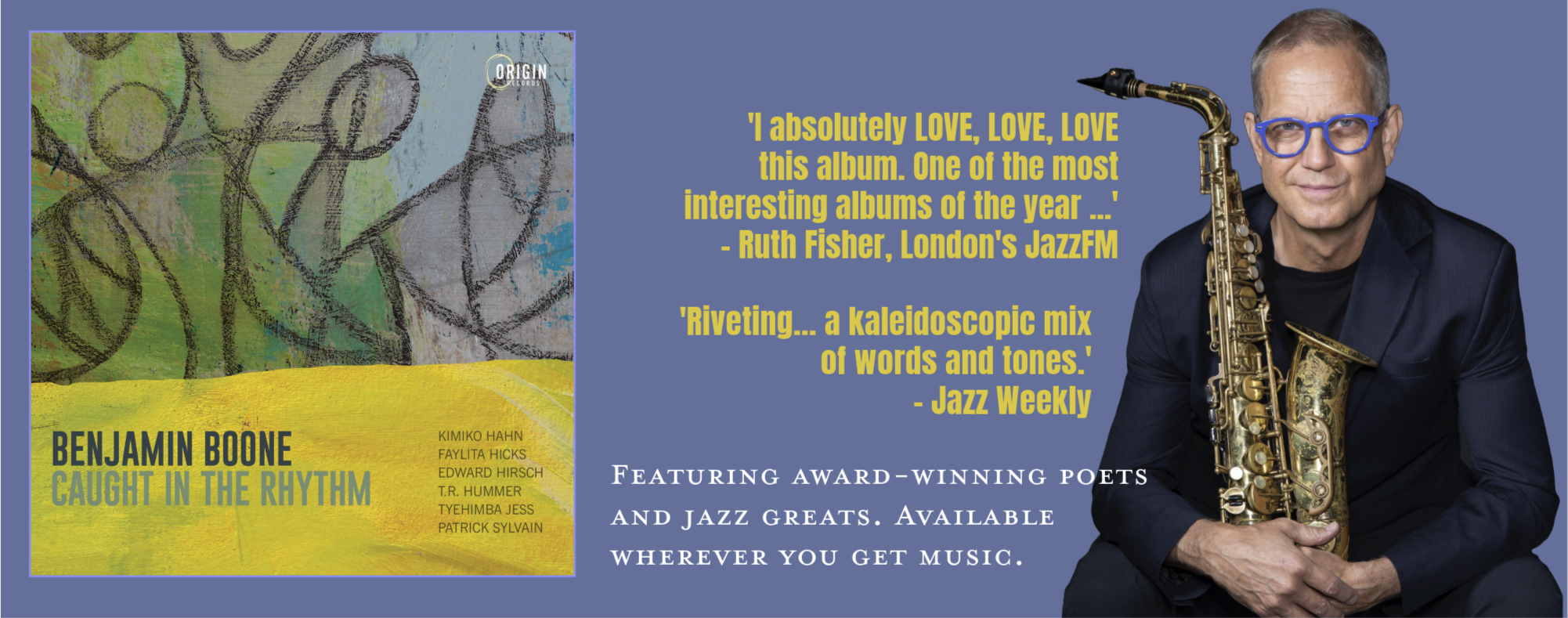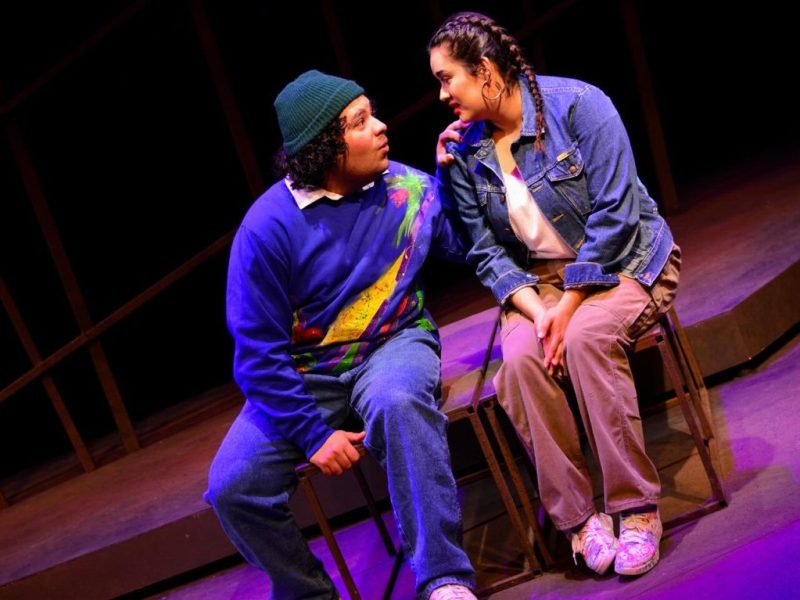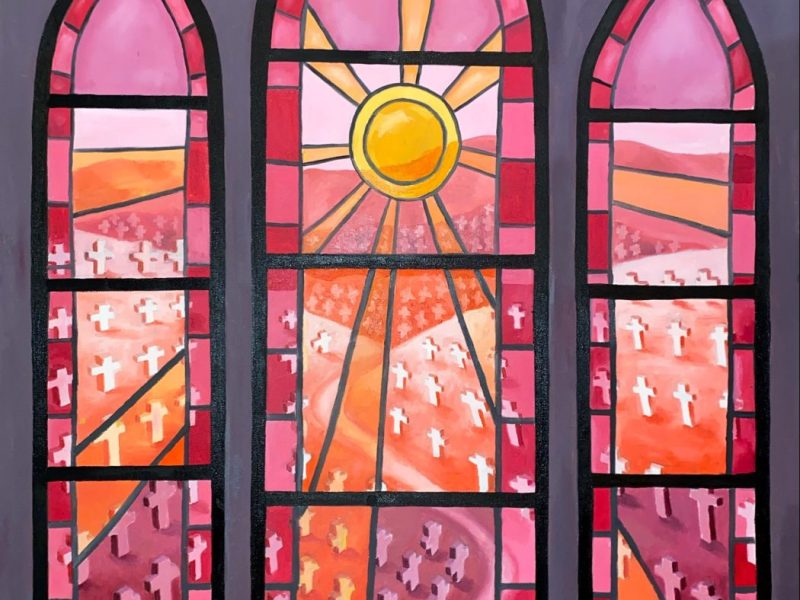With Anthony Cody’s big National Book Award news, Fresno’s poetry scene gets even more impressive
When it comes to announcing award nominations, the folks at the National Book Awards know how to ratchet up the suspense. First, out of hundreds of nominations in various categories (fiction, nonfiction, poetry, translated literature, young people’s literature), a “longlist” of 10 semi-finalists in each category is announced.
Then, a few weeks later, a “short list” of finalists is announced. The longlists in each categories are chopped in half. You end up with 25 nominated works — the best of the best.
Winners will be announced Nov. 18.
Let’s take a look at this process through the eyes of poet Anthony Cody, recent MFA graduate from Fresno State and author of “Borderland Apocrypha.” On Sept. 18, the poetry longlist was revealed:
Rick Barot, “The Galleons”
Mei-mei Berssenbrugge, “A Treatise on Stars”
Lillian-Yvonne Bertram, “Travesty Generator”
Tommye Blount, “Fantasia for the Man in Blue”
Victoria Chang, “Obit”
Don Mee Choi, “DMZ Colony”
Anthony Cody, “Borderland Apocrypha”
Eduardo C. Corral, “Guillotine”
Natalie Diaz, “Postcolonial Love Poem”
Honorée Fanonne Jeffers, “The Age of Phillis”
Yes, that is Cody’s name. On the freakin’ longlist for a National Book Award. Doesn’t get much better than that, right?
Now fast forward to Tuesday, when the finalists were announced. Remember, only five finalists will advance. Here’s the short list:
Mei-mei Berssenbrugge, “A Treatise on Stars”
Tommye Blount, “Fantasia for the Man in Blue”
Don Mee Choi, “DMZ Colony”
Anthony Cody, “Borderland Apocrypha”
Natalie Diaz, “Postcolonial Love Poem”
Wow.
He’s a finalist.
This is significant on many levels: for Cody’s blossoming career; for the Fresno State MFA program; for the Fresno poetry scene in general. He is the only MFA alum to be either longlisted or shortlisted for the National Book Award.
The honor builds on the long tradition of exceptional poets at Fresno State — both students and faculty. It is so, so exciting.
I actually started working on an interview with Cody — who graduated in May as the Dean’s Graduate Medalist for the College of Arts and Humanities — after I found out about the longlist honors. Then, as I was prepping for publication, word came about the finalist honor. So it was time for an update midway through. Read on for a bit of back story on a National Book Award finalist:
Q: OK, set the scene for us. There’s a sort of “dazed-just-got-nominated” trope that often pops up with nomination coverage of such awards as the Nobels or the Oscars, say, in which a bleary-eyed West Coast honoree is awakened from sound slumber by a phone call with the news. How did you find out you got longlisted? Were you surprised? Did you even know when the nominations were scheduled to be announced?
A: Due to the pandemic, my poor sleep habits have escalated. This, coupled with the fact that I have been trying to avoid “doom-scrolling” on social media, meant that I was entirely unaware of the National Book Award longlist announcements were happening.

Anthony Cody
As a result, hearing my phone buzz awakened me in a jarring way. And, if not for a sense of dread in all things happening on this planet at the moment, I would have attempted to turn off my phone, but instead turned it over to see a flurry of notifications and texts that allowed an immediate connection of all the dots that the buzzing was something completely different.
Surprised might be an understatement, perhaps the center of a Venn Diagram of discombobulated, overwhelmed, and grateful.
Q: It’s a funny word, longlist. Tell us what it means in terms of the National Book Awards.
A: Every year, the National Book Foundation puts out a longlist of 10 books, now in 5 categories (Fiction, Non-Fiction, Young Adult Literature, Translation, and Poetry). Each genre has a panel of peers who serve as judges that commit to reading the piles of books that are submitted within their respective categories, and ultimately decide on the 10 books that are most deserving that were published in the year.
To be among the hundreds nominated is an honor. However, to be among the judges final 10 in poetry is a joy I am still attempting to grasp. The range of writing, and diversity of voices and styles, expands each and every year in publishing, from stunning debuts and to collections from poets I consider personal literary icons (Mei-mei Berssenbrugge and Don Mee Choi), mentor/friends (Eduardo C. Corral), and pathmakers (Natalie Diaz).
Related story: Fresno State’s Anthony Cody vies for university honor
Q: As far as I can tell, you’re the first Fresno State MFA alum to be longlisted for the award. (There might be some other Fresno State alumni in that category, but not MFA specifically and not in the last 20 years.) What’s your response to that?
I am honored to help represent the MFA program at Fresno State in this way. I am thankful for the poet Connie Hales who has been such a brilliant and selfless steward of a program that continually graduates stellar writers.
I keep thinking about the online response to the longlist as it relates to Fresno in recent weeks. The poets Sara Borjas (Fresno State undergrad alumna) won an American Book Award, and Khaty Xiong (born in Fresno) won a Ruth Lilly Fellowship so there was considerable visibility on Fresno Poetry in recent weeks. Questions jokingly asked: What’s in our water? And What’s the secret? Ultimately, the only thing that kept circling in my head was the words at the end of Juan Felipe Herrera’s poem “Borderbus,” in which he ended the poem with:
We are nothing and we come from nothing
but that nothing is everything, if you feed it with love
that is why we will triumph
We are everything hermana
Because we come from everything
This always has reminded me of the truest sense of the ethos of Fresno State’s MFA, Fresno Poets, and the valley as a whole – we do not have much here, but what we do have is the lineage of our family (both real or chosen), and the writers who have come before us or alongside us, who have been so giving, so supportive, and willing to share and build upon the foundation of voices like Philip Levine, Larry Levis, Luis Omar Salinas, Gary Soto, Lawson Fusao Inada, Andrés Montoya, and Diana Garcia.
Q: Whoa there, we interrupt this interview for a special news bulletin: You made the short list! You’re one of five finalists in the poetry category. When will the awards be announced? Do you have to give a speech if you win? Will you wear a tux (or at least a tuxedo top and shorts) for the Zoom ceremony? What’s going through your head right now?
A: I will say this news completely caught me off guard in a different way. The finalists were announced on my mother’s birthday, so the news was a fantastic moment of celebration for me that I could share this day with her in a different way, despite being unable to spend time in person with one another because of the pandemic. Much love to my mother, who continues to show me so much about generosity, laughter, and the importance of continuing to push yourself to learn more about yourself and others.
The National Book Awards Ceremony will be held virtually this year on Wednesday, Nov. 18, 2020. Normally, the event is held in New York City, and a full tuxedo and evening gown are part of the programming. I am still unsure what the outfit for the evening will look like for me virtually, at the moment I am thinking tux and basketball sneakers to complete the virtual look.
I have watched livestreams of prior National Book Award ceremonies, and winners do give speeches, so I will definitely sketch some things out that very likely will feel and look like my final answer in our Q & A today.
The thing that keeps running through my head is that I am on the finalist list with Mei-mei Berssenbrugge, a poetry icon who settled in the southwest and actually worked with Georgia O’Keefe in New Mexico. While that is an amazing fact about her, even more amazing in this context is that she actually was the judge who selected my book to be published via the Omnidawn Open Poetry Book Prize. We have become email pen pals of late, and I am grateful for her generous spirit, her craft, and her willingness to read my long emails. “A Treatise on Stars” is her thirteenth book, and I am excited that she is a finalist, and hope that I will hear her give a speech come mid-November.
The Munro Review has no paywall but is financially supported by readers who believe in its non-profit mission of bringing professional arts journalism to the central San Joaquin Valley. You can help by signing up for a monthly recurring paid membership or make a one-time donation of as little as $3. All memberships and donations are tax-deductible.
Q: I wrote about “Borderland Apocrypha” in May. Can you give just a brief explanation of the work for readers who are learning about it here for the first time?
A: The heart of work in “Borderland Apocrypha” is centered around the history of lynchings, bigotry, and violences, by citizens, the state, and agents of the state against Mexicans and Mexican Americans following the 1848 Treaty of Guadalupe Hidalgo in the Southwest. Unfortunately, as I was researching the book, the crimes and atrocities did not taper off, rather the wrongs became integrated into policing, legislation, and border enforcement. As a result, while the book is historical, whenever I share poems from the collection, I am reminded that the distance between then and 2020 is devastatingly minimal.
Q: Have you attracted any media interest since being named a longlister?
A: I would not say media, per se, but I have been fielding many more inquiries for virtual readings, virtual class visits, and an increase in interviews within literary outlets.
Q: How about sales of your book? Does a nomination mean an increase?
The longlist is rolled out via The New Yorker, as such, a considerable amount of readership boost does occur following the announcement. The sudden rush did mean that my book was hard to come by at some online retailers, and quite a folks even found my website and ordered signed copies from me directly. (Editor’s note: Here is the link to do so.)
But outside of the sales, what I am really thankful that more people will now also learning about the long history of lynchings and crimes that have occurred in the southwest that have managed to be erased or obfuscated via media, textbooks, and the prevailing narrative.
Q: Anything else you’d like to say?
A: Much like the diverse of voices that we see coming out of Fresno poetry today that is predominantly Chicanx, Hmong, and LGBTQ, the industry itself has been undergoing its own seismic shift due to the labor and sacrifice of our predecessors in the field of poetry. I think of the generations of west coast Latinx writers before me who published book after book without tremendous accolade and steadily infiltrated publishing and academia, far from New York City and the major publishing houses, and slowly chipped away in creating space for writers like me to even have the audacity to publish books and be considered for any awards. Poets like Lorna Dee Cervantes, Juan Felipe Herrera, Francisco X. Alarcon, and Ernesto Trejo. And then the poets who took those paths a step further in Andrés Montoya, Carmen Giménez Smith, Rigoberto Gonzalez, and Eduardo C. Corral. I mention these poets specifically, because outside of the Fresno lineage from which I was born into, these are my predecessors in whom I see myself participating in a long conversation that allows me to re-imagine my own work, our collective work, and expand upon that dialogue across generations.
It is truly my hope that this will not only be an opportunity only for me, but also a way in which I can give back, teach, mentor, and elevate the work of other emerging poets (many of whom I referenced in our earlier interview) from Fresno and the valley on a larger scale and include more voices to join into that life-long conversation of poetry around the nation.










Juan Felipe
Thank you Donald! Magnificent ! And gracias for keeping your eye and pen on the beautiful voices of the Valley and on Cody, the new Force of blasting talent, deep wisdom and daring vision .